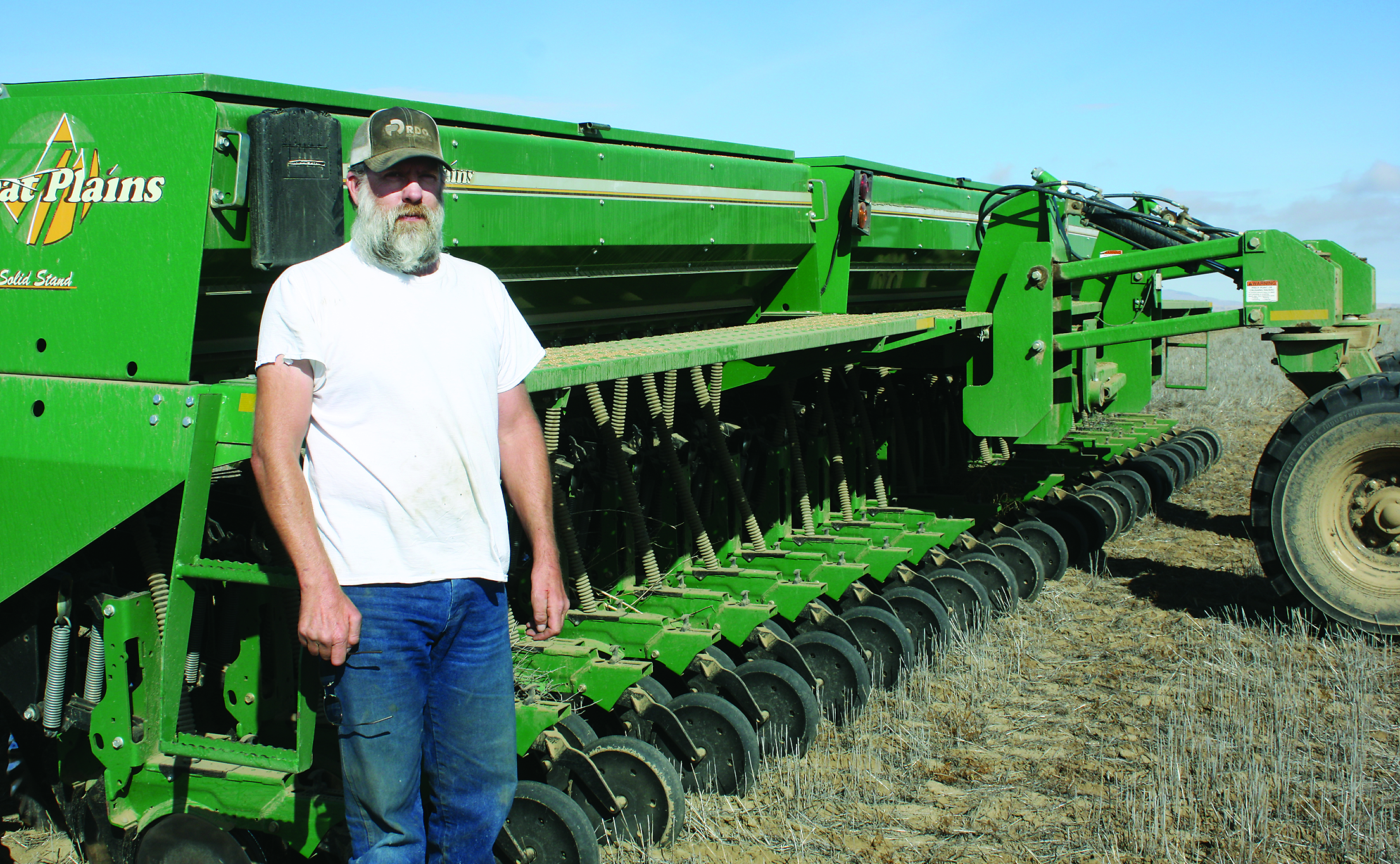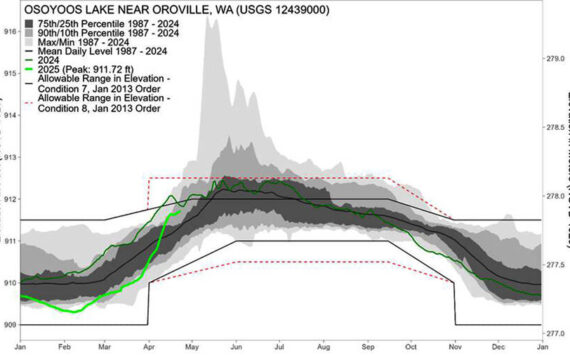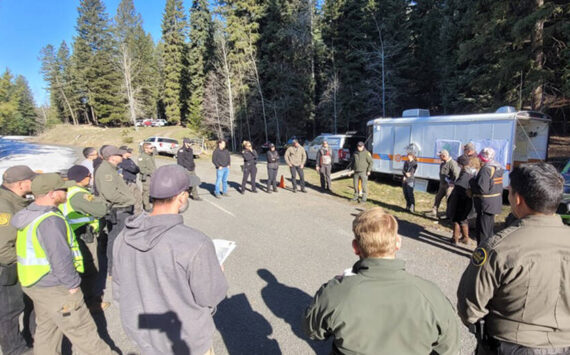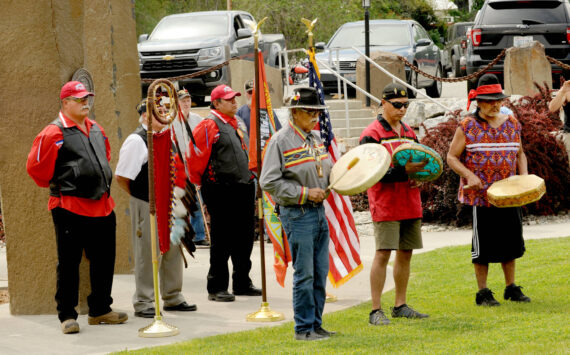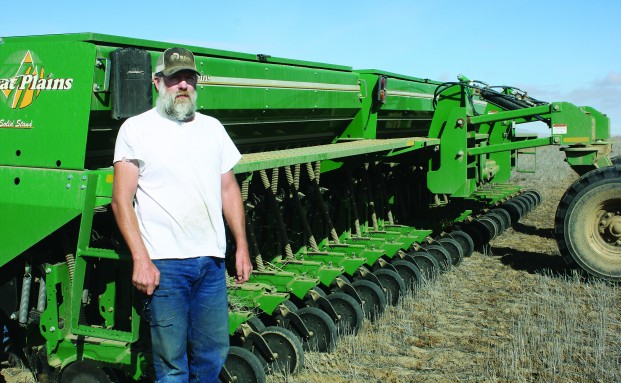
Photo courtesy Wheat Life/Washington, Association of Wheat Growers
By Matt Spaw
WNPA Olympia News Bureau
OLYMPIA, Mar. 3 – Legislation that would provide farmers more time to prepare for termination of their leases with Department of Natural Resources passed the Senate Feb. 26.
SB 5051 would extend the length of advance written notice for non-default termination of state land leases for agriculture and grazing land to 180 days. Lessees are currently given 60 days notice before the Department of Natural Resources (DNR) terminates their lease.
The measure now awaits consideration in the House of Representatives’ Agriculture and Natural Resources Committee.
The Senate bill was drafted in response a dispute between five Benton County dry-land wheat farmers in Horse Heaven Hills and DNR.
One of the farmers — David Moon, manager of G&D Moon Partnership — said he heard a rumor of an irrigation project years before he received official word from DNR. In March 2016, Moon got a phone call from the agency asking him to stop applying chemicals to all 1,200 acres of his leased land. If he agreed, it would begin the three-year process to become certifiable as organic for future production of irrigated crops.
He and the other farmers involved refused after multiple meetings with DNR, Moon noted.
The farmers reached out to Benton County Commissioner Shon Small, who contacted Senators Sharon Brown, R-Kennewick, and Judy Warnick, R-Moses Lake. After the farmers received their 60-day notices in August, the senators worked with them and DNR, eventually convincing the department to provide financial compensation for early termination.
Moon says his compensation will cover half his $60,000 loss. Dry-land wheat farmer Chad Smith says he incurred losses of $300,000 and received $52,000. Those losses are due to not being able to harvest for the last four years he will no longer spend on the land.
State agriculture and grazing leases typically run 10 years. In most cases, a flat rate based on the crops grown by the lessee goes to a school trust as rent. As trust manager, DNR has an interest in leasing to tenants who produce high revenues to support the trust. The department can use a non-default termination to replace a tenant with a higher-revenue tenant.
The new bill requires DNR, when terminating a lease, to give the current tenant documentation showing that the land is part of a plan for “higher and better use, land exchange or sale.”
Lease terminations affect the way farmers plan harvesting schedules and resource purchases, says wheat farmer Chad Smith. Farmers maintain their land’s productivity by cycling different crop types, as well as by allowing the land to remain unplanted for periods of time between crops. Farmers often choose to rent DNR-managed land adjacent to land they own because if they didn’t, the land they plant on would be inefficiently segmented, Smith noted.
Farmers use this knowledge to purchase necessary supplies such as seeds and harvesting machinery.
Darin Cramer, DNR Product Sales and Leasing Division Manager, says the farmers should have been notified earlier despite the official 60-day warning given.
“We screwed up,” Cramer said in an interview. “We were supposed to notify these lessees of termination plans well in advance of spring. Our intent was to provide them a crop-year’s time to finish regardless of what the lease said.”
The leases previously held separately by the five farmers go up for auction as one 3,000-acre parcel, called the “Paterson Project,” April 6. The land, previously used for dry land wheat, will be irrigated from the Columbia River to grow crops that require more water than dry-land wheat, according to the DNR.
“While we have a good plan to turn this into irrigated land, it may not pan out,” Cramer said. “But it’s our job to take informed risk and attempt to produce as much revenue as possible.”
Smith says he lost about 1,200 acres of land his family has rented for years. “My grandfather broke it out of sagebrush in 1949 when he rented it from the state,” he said.
Cramer believes that the legislation is reasonable and won’t be difficult for DNR to implement.
“I’m thankful DNR admitted that,” Senator Brown said. “Unfortunately, it doesn’t help the guys who lost their leases.”
(This story is part of a series of news reports from the Washington State Legislature provided through a reporting internship sponsored by the Washington Newspaper Publishers Association Foundation. Reach reporter Matt Spaw at matthewspaw@gmail.com)
DNR: Land Trust Manager
Washington State’s Department of Natural Resources leases 1.1 million acres of state trust lands for agriculture and grazing, producing revenue to help fund public school construction across the state.
According to the agency, it works with lessees to assure that the lands are productive and sustainably managed while public resources such as water, fish, and wildlife are protected.
Leases for agricultural land are offered at auction, usually for a 10-year term.
Related website links:
Paterson Project
Senate Bill 5051
http://app.leg.wa.gov/billsummary?BillNumber=5051&Year=2017
Wheat Life article on farmers’ DNR leases
